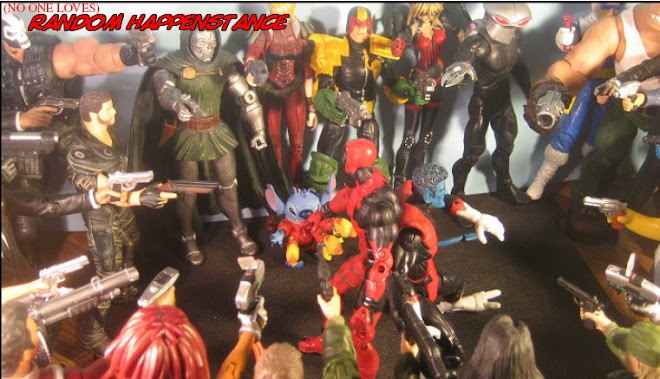 ...it's not like comparing apples and oranges, more like apples and...Oompa-Loompas, or something. Deadpool's caption boxes are mental illness played for laughs, or as a narrative device to take the place of a supporting cast. In the Unknown Soldier, though, that little voice in his head is much, much worse: it's the manifestation of whatever training Dr. Moses Lwanga received that made him the Soldier, a secret that still hasn't been revealed in the book to the reader or to Moses. And that voice might be running the show when Moses isn't looking...
...it's not like comparing apples and oranges, more like apples and...Oompa-Loompas, or something. Deadpool's caption boxes are mental illness played for laughs, or as a narrative device to take the place of a supporting cast. In the Unknown Soldier, though, that little voice in his head is much, much worse: it's the manifestation of whatever training Dr. Moses Lwanga received that made him the Soldier, a secret that still hasn't been revealed in the book to the reader or to Moses. And that voice might be running the show when Moses isn't looking...
Of course, whereas Deadpool's basically a lighthearted romp through the Marvel universe, Unknown Soldier's setting is based on real-world events in Uganda circa 2002, and it doesn't paint a pretty picture of things. It's not like even the old Our Army at War version was a laugh a minute, but it reads like a screwball comedy compared to this version. Dysart's Soldier is bleak even moreso than the Garth Ennis miniseries, so you know that's bleak. Therefore, unlike most of the comics I buy, Unknown Soldier isn't an easy read. But whatever atrocities you might see in the comic, far worse happened in real life, and with no bandaged antihero to try to steer things along the right way.
Scans from Unknown Soldier #18, "Dry Season, conclusion" Written by Joshua Dysart, art by Alberto Ponticelli. I don't think the single-issue sales for this book are great, but they should be. I lucked into a batch of issues at a dollar a piece, and it's on my pull list now, for as long as it runs...

No comments:
Post a Comment